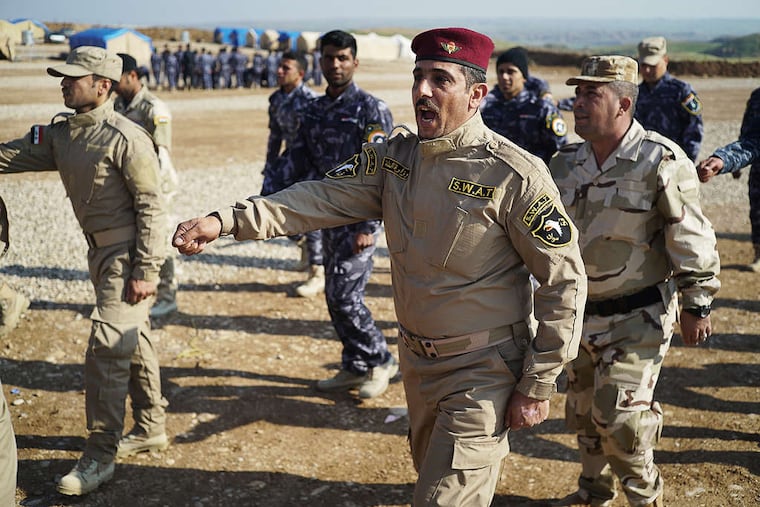Iraqis say they may delay Mosul offensive
WASHINGTON - With the military operation to retake Iraq's second-largest city from Islamic State militants just a few months away, questions persist about whether the struggling Iraqi military will be ready for the fight.

WASHINGTON - With the military operation to retake Iraq's second-largest city from Islamic State militants just a few months away, questions persist about whether the struggling Iraqi military will be ready for the fight.
Iraqi officials continue to insist they haven't gotten the advanced weapons they need for the offensive in the northern city of Mosul, and some question whether they will be ready for a spring offensive. But the Pentagon insists the United States has sent tens of thousands of weapons and ammunition and more is in the pipeline.
Hakim al-Zamili, the head of the security and defense committee in the Iraqi parliament, said Friday that "any operation would be fruitless" unless the brigades are properly prepared and have the weapons they need.
"I think if these weapons are not made available soon, the military assault might wait beyond spring," he said. "The Americans might have their own calculations and estimations, but we as Iraqis have our own opinion. We are fighting and moving on the ground, so we have better vision and April might be too soon."
A U.S. Central Command official provided some details of the battle plan Thursday, saying the coordinated military mission to retake Mosul will likely begin in April or May and will involve up to 25,000 Iraqi troops. They have cautioned, however, that if the Iraqis aren't ready, the timing could be delayed.
The core of the fighting force will be five of Iraq's most accomplished brigades, which will go through additional U.S. training before the operation.
But Zamili said that while several of Iraq's units have gone through training recently, "these well-trained brigades cannot get involved in battles without being equipped with advanced and effective weapons that would enable them to penetrate enemy lines."
His comment reflects a common complaint from the Iraqi government, both in recent months and throughout much of the Iraq war. The U.S., however, has sent tens of thousands of weapons, ammunition, body armor and other equipment to the country.
According to a senior defense official, the U.S. sent nearly 1,600 Hellfire missiles to Iraq last year, and has already delivered 232 more. About 10,000 M-16 assault rifles are due to arrive in the next few weeks, along with 23,000 ammunition magazines. The U.S. also has delivered thousands of rockets, mortar rounds, tank rounds, .50-caliber rounds and 10,000 M-68 combat optical sights, a rifle scope commonly used by the U.S. military.
About 250 mine-resistant, armor-protected vehicles will be delivered in a few weeks, along with sophisticated radio systems for the MRAPs and more ammunition rounds, said the official, who was not authorized to discuss the matter publicly and spoke on condition of anonymity.
The public discussion of the operation, including how many Iraqi brigades would be involved and how Kurdish peshmerga military would be used, triggered questions about whether it provided any key information to the enemy.
The operation itself comes as no surprise to the Islamic State militants. Iraqi leaders have for months made it publicly clear that they were planning an operation to retake Mosul and that they were eager to get started. In addition, U.S. officials had already acknowledged they were beginning preparations for the Mosul mission, including using airstrikes to shut down supply lines the insurgents were using to get equipment or people in and out of the city.